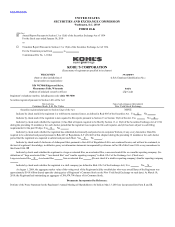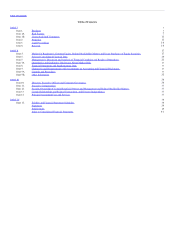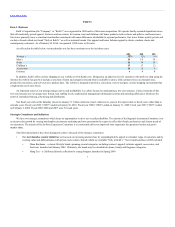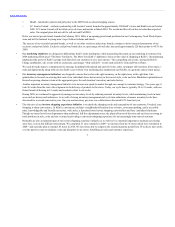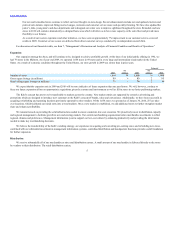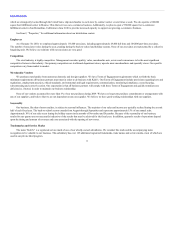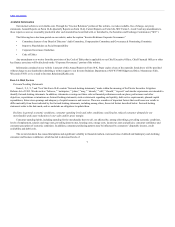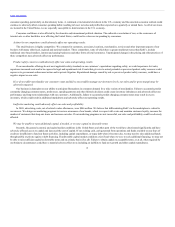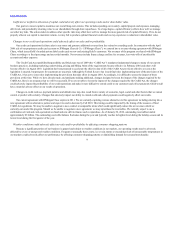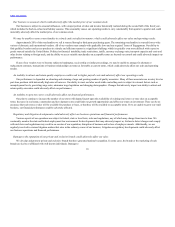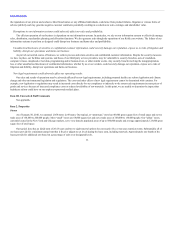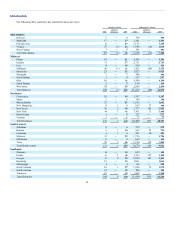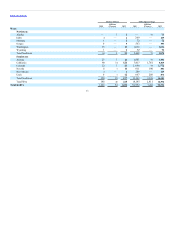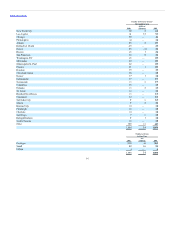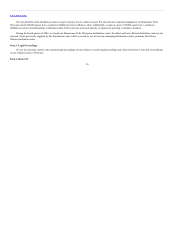Kohl's 2009 Annual Report Download - page 8
Download and view the complete annual report
Please find page 8 of the 2009 Kohl's annual report below. You can navigate through the pages in the report by either clicking on the pages listed below, or by using the keyword search tool below to find specific information within the annual report.
Table of Contents
consumer spending, particularly on discretionary items. A continued or incremental slowdown in the U.S. economy and the uncertain economic outlook could
continue to adversely affect consumer spending habits resulting in lower net sales and profits than expected on a quarterly or annual basis. As all of our stores
are located in the United States, we are especially susceptible to deteriorations in the U.S. economy.
Consumer confidence is also affected by the domestic and international political situation. The outbreak or escalation of war, or the occurrence of
terrorist acts or other hostilities in or affecting the United States, could lead to a decrease in spending by consumers.
Actions by our competitors could adversely affect our operating results.
The retail business is highly competitive. We compete for customers, associates, locations, merchandise, services and other important aspects of our
business with many other local, regional and national retailers. Those competitors, some of which have a greater market presence than Kohl’s, include
traditional store-based retailers, internet and catalog businesses and other forms of retail commerce. Unanticipated changes in the pricing and other practices of
those competitors may adversely affect our performance.
Product safety concerns could adversely affect our sales and operating results.
If our merchandise offerings do not meet applicable safety standards or our customers’ expectations regarding safety, we could experience lost sales,
experience increased costs and/or be exposed to legal and reputational risk. Events that give rise to actual, potential or perceived product safety concerns could
expose us to government enforcement action and/or private litigation. Reputational damage caused by real or perceived product safety concerns, could have a
negative impact on our sales.
If we do not offer merchandise our customers want and fail to successfully manage our inventory levels, our sales and/or gross margin may be
adversely impacted.
Our business is dependent on our ability to anticipate fluctuations in consumer demand for a wide variety of merchandise. Failure to accurately predict
constantly changing consumer tastes, preferences, spending patterns and other lifestyle decisions could create inventory imbalances and adversely affect our
performance and long-term relationships with our customers. Additionally, failure to accurately predict changing consumer tastes may result in excess
inventory, which could result in additional markdowns and adversely affect our operating results.
Ineffective marketing could adversely affect our sales and profitability.
In 2009, advertising costs, net of related vendor allowances, were $846 million. We believe that differentiating Kohl’s in the marketplace is critical to
our success. We design our marketing programs to increase awareness of our brands, which we expect will create and maintain customer loyalty, increase the
number of customers that shop our stores and increase our sales. If our marketing programs are not successful, our sales and profitability could be adversely
affected.
We may be unable to raise additional capital, if needed, or to raise capital on favorable terms.
Recently, the general economic and capital market conditions in the United States and other parts of the world have deteriorated significantly and have
adversely affected access to capital and increased the cost of capital. If our existing cash, cash generated from operations and funds available on our lines of
credit are insufficient to fund our future activities, including capital expenditures, or repay debt when it becomes due, we may need to raise additional funds
through public or private equity or debt financing. If unfavorable capital market conditions exist if and when we were to seek additional financing, we may not
be able to raise sufficient capital on favorable terms and on a timely basis (if at all). Failure to obtain capital on acceptable terms, or at all, when required by
our business circumstances could have a material adverse effect on us including an inability to fund new growth and other capital expenditures.
8

